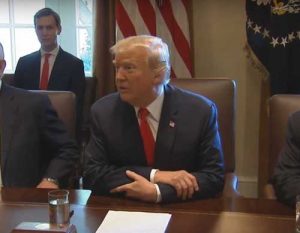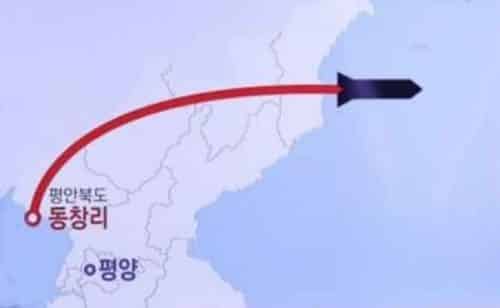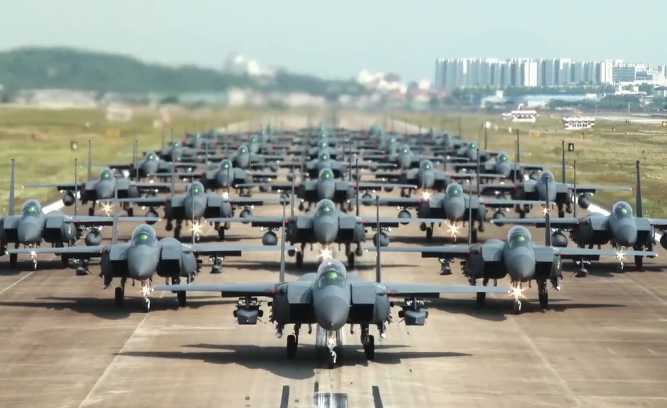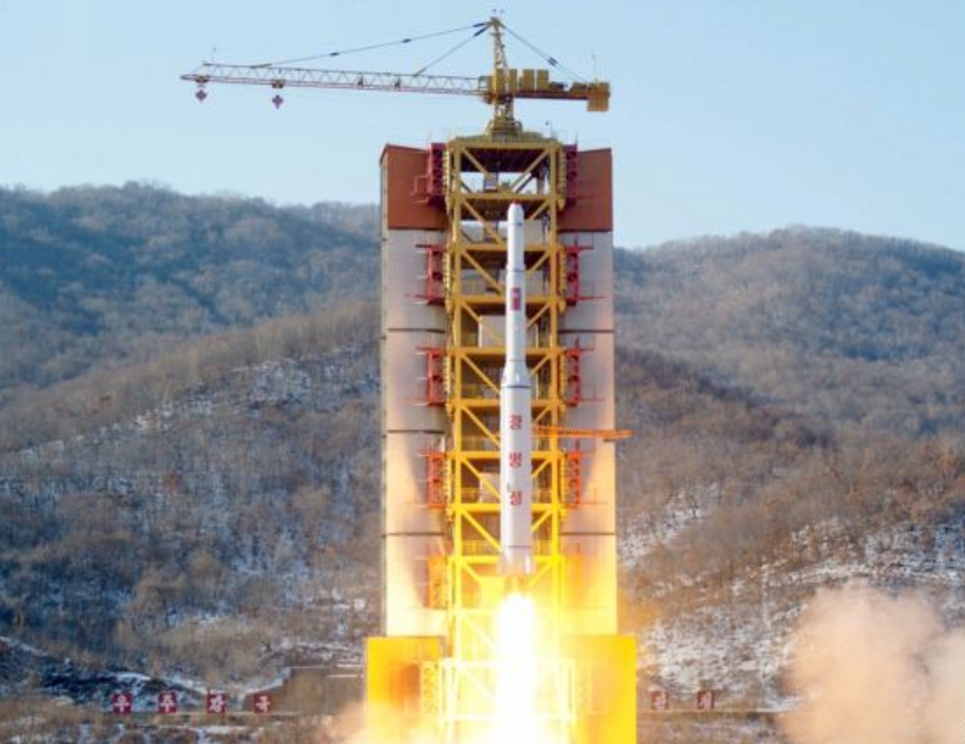
U.S. President Donald Trump uttered assurances during the start of his Cabinet meeting on Monday morning that the threat from North Korea will be taken care of.
“We’ll handle North Korea. We’re going to be able to handle them. It will be handled. We handle everything,” Trump said in response to a question from a reporter.
On Saturday, the president, a day after North Korea tested a ballistic missile it claims can reach all of the United States, took to social media with a blunt chastisement of China, which is North Korea’s powerful neighbor and its single significant ally.
“I am very disappointed in China,” Trump wrote in a pair of Twitter posts. “…they do NOTHING for us with North Korea, just talk. We will no longer allow this to continue. China could easily solve this problem!”
That was a reversal of the praise the U.S. president had previously uttered for his Chinese counterpart, Xi Jinping, after Trump hosted him at Mar-a-Lago in early April. At that time, Trump expressed confidence that Xi would apply adequate pressure on Pyongyang to de-escalate tension on the Korean peninsula.
At the United Nations Monday, China’s U.N ambassador, Liu Jieyi, deflected any U.S. criticism, saying,“There are two principle parties to the issue of denuclearization and peace and stability on the Korean Peninsula: DPRK and the United States.” He added that the two nations “hold responsibility to keep things moving, to start moving in the right direction, not China.”
After Friday’s ICBM test launch – the second by North Korea – the United States responded with a sudden joint ballistic missile firing exercise with South Korean forces and flying a pair of U.S. Air Force B-1B bombers over the peninsula in a show of force.
US missile test
The United States will launch an unarmed Minuteman III ICBM on Wednesday from Vandenberg Air Force Base in California “to validate and verify the effectiveness, readiness and accuracy of the weapon system,” according to the U.S. Air Force Global Strike Command.
South Korean President Moon Jae-in, in a move that is expected to further anger neighbor China, is now calling for the full deployment of the Terminal High Altitude Area Defense (THAAD) missile defense system to proceed, reversing a decision last week to delay any further work on the project until an extended environmental study is completed. Currently, the system is partially functional with two of six mobile launchers operational.[xyz-ihs snippet=”Adsense-responsive”]Pentagon spokesman Capt. Jeff Davis said North Korea’s recent actions are making the case for the need for THAAD.
South Korea’s defense minister said Sunday the military will upgrade its Patriot missile system as well.
Conversations with Seoul, Japan
The South Korean president, who is on vacation, and Trump, are expected to soon talk by phone to discuss North Korea’s second purported successful ICBM test that independent weapons experts said demonstrated the capability to reach many parts of the United States.
Japanese Prime Minister Shinzo Abe spoke with Trump on Monday (Asia time). A White House statement said Trump and Abe agreed that North Korea “poses a grave and growing direct threat” to the U.S., Japan, South Korea and other countries, and that the two also committed to increasing diplomatic and economic pressure.
Abe told reporters Trump had vowed to take “all necessary measures” to protect the Japanese people from the North Korean threat.
New sanctions
Trump has also indicated he will soon sign a new bill, passed by the U.S. Congress last week, authorizing new sanctions against North Korea, Iran and Russia, that would ban from the U.S. financial system all Chinese entities that do illicit business with North Korea.
A North Korea analyst at Donghua University in Shanghai, Woo Su-keun, says Beijing opposes these secondary sanctions and argues that internal violations should be handled under Chinese law.
“China holds a point that it is not appropriate for Chinese companies to be sanctioned by a specific country, rather it can only be done by the U.N.,” he said.
The U.S. ambassador to the United Nations, Nikki Haley, issued a statement on Sunday saying, “The time for talk is over.”
Source: VOA








